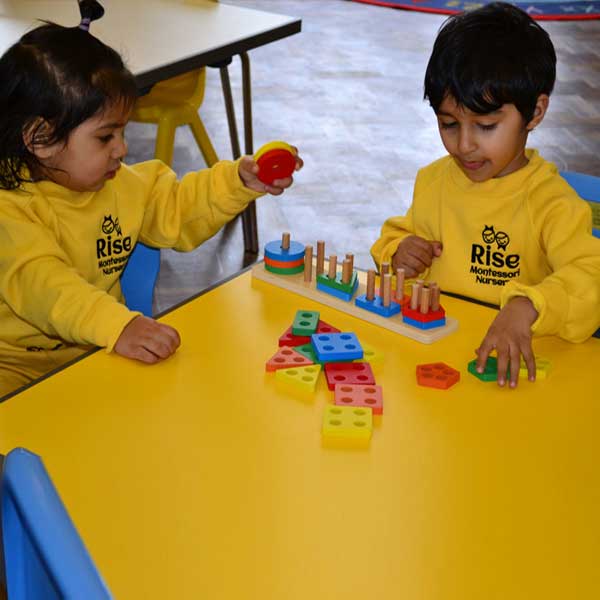Montessori education and curriculum are easily one of the most preferred schooling methodologies for kids in various countries today. Montessori based teaching is not just focused on building a good sense of learning and educational background in kids but also on the overall personality and development of a child.
How Does Montessori Help in Overall Personality?
Social Development
One of the common elements in all Montessori pre-schools is that the classrooms have children of mixed age groups. It is very common in a Montessori classroom where an older child is helping a younger one with materials and activities or even working together on an activity.
Similarly, it is common for older children to find it easier to remember details and teachings better as they help and work together with their younger classmates. As competition with classmates is almost non-existent in a Montessori classroom, children find it easier to connect with peers and find inspiration from each other without any embarrassment or shame.
Cognitive Development
Montessori preschools are big on reading activities, along with activities like music and talking. A teacher or an older classmate could do reading to the new children in the class while they listen to the voice even though they are not speaking already.
Playful tunes of various genres are quite common in Montessori pre-school, as much as lullabies are for cognitive development. Most Montessori pre-schools have big outdoors where babies can enjoy nature, hear nature’s voices, and experience sights and smells.
Emotional Development
Montessori pre-schools help children handle strong emotions like anger, sadness, disappointment, fear, excitement and many more. One of the ways Montessori helps is to be attentive when a child is angry or crying. Avoiding the situation by downplaying it as tantrums will only escalate and make it harder for the child to grow faith, let alone handle emotions themselves.
Montessori attempts to teach the children about emotions by being a role model. Teachers share their emotional state with them and acknowledge emotions in front of the children.
Physical Development
Various practical life activities help pre-schoolers improve fine motor skills and hand-eye coordination. Montessori teachings focus on activities that encourage a child’s muscle memory, motor planning, etc., contributing to gross motor skills. Sensory development is one of the most important parts of physical development, where the curriculum focuses on honing the child’s senses, such as visual, tactile, baric, stereognosis, etc.
Conclusion
Montessori classrooms do a lot of things differently than traditional classrooms. Even the walls of a Montessori classroom are painted with meaningful art and drawings, while the furniture is colourful and fun too.
Montessori teaching is definitely for those children whose parents want their child to get unique and individualised treatment during the pre-schooling for improved and better personality development.

